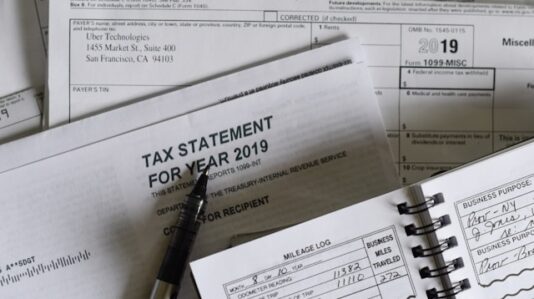In the world of business, where competition and conflicts abound, understanding the nuances of business torts is crucial. In this blog we delve into the intricate world of these legal wrongs and their impact on modern enterprises.
Types of Business Torts
Business torts are wrongful acts that lead to reputational harms or economic losses for businesses or parties involved. Some torts are intentional, involving deliberate acts. For instance, when a business fraudulently misrepresents its offerings, it commits an intentional tort. Other torts are negligent, like when a business carelessly misrepresents a product or service, causing harm to consumers.
Some common types of business torts include:
- Fraudulent misrepresentation
- Interference with contracts or business relationships (i.e., tortious interference)
- Defamation (i.e., trade libel)
Fraudulent Misrepresentation
Fraudulent misrepresentation occurs when an individual knowingly makes a deceptive statement with the intention of leading another person to rely on it. Consequently, the person who relies on the false statement suffers harm or losses.
Within the realm of business torts, one party may make false representations as a means to persuade another party to engage in a transaction. For example, a party may falsely claim that they have plans to develop a specific product line, which would enhance the value of the business. An interested person or business hears this claim and places trust in this deceitful statement while seeking to invest in, or even purchase, the representer’s company, resulting in the interested party paying a higher price for its investment or acquisition.
Parties seeking to bring claims based on fraud in New York should be aware that fraud must be pled with “particularity,” meaning the plaintiff must allege facts sufficient to support a reasonable inference that the allegations are true.
Interference with Contracts or Business Relationships
Tortious interference arises when one party unlawfully disrupts the contractual obligations or business association of another party. This can manifest in various forms, including unethical conduct, extortion, enticement and coercion.
For instance, a purchaser may have a contract with a manufacturer to buy smart watches. Aware of the contract between the purchaser and manufacturer, a competitor of the manufacturer might falsely tell the purchaser that the contracting manufacturer will not be able to deliver the smart watches on time, or perhaps offer their own smart watches at an unreasonably low price. In doing so, the competitor coaxes the purchaser to breach the contract with the original manufacturer.
When a third party interferes with an existing contract, claimants must prove the following elements to establish a claim of tortious interference:
- A valid contract exists between the aggrieved party and another party;
- The third party (defendant) knows about the contract;
- The third party intends to induce the contracting party or the party involved in the relationship to breach the contract or terminate the relationship;
- The third party lacks legal justification for inducing the breach or termination;
- A contract breach or termination of the business relationship occurs; and
- The party affected by the breach or termination suffers damages.
Though breach of contract is the most common cause of interference, it is not the only form. Tortious interference can also occur with regard to potential contracts or relationships that a business has yet to establish. In a situation where a formal contract is not involved, interference with prospective economic advantages may occur. For example, in the event that an external party disrupts the negotiation process and causes the anticipated contract to be withdrawn, the business potentially has grounds to file a claim against said external party.
To establish a claim of interference with prospective economic advantage, the following elements must be proven:
- There was an established connection between the business and another business or individual;
- A third party, external to the relationship, was aware of the existence of this connection;
- The outside party intentionally and unlawfully interfered with the business relationship; and
- The interference by the outside party resulted in detrimental consequences or harm to the business relationship.
Defamation and Trade Libel
Defamation (traditionally known as libel” if written, or “slander” if spoken) refers to the dissemination of an untrue statement that harms another person’s character or reputation. In the commercial context, trade libel involves spreading false assertions about a business’ products or services.
Trade libel requires a written or oral statement about merchandise or services to be directed towards a third party that is not the target business. This is called “publication.”
To establish a claim of trade libel, the affected party must prove:
- There was a false statement (written or oral);
- Published or distributed to a third person(s);
- With the intent, or reasonable belief, that the statement will cause financial loss for the business;
- That there is in fact a financial loss to the business (i.e., special damages); and
- The statement was made with express or implied malice, indicating knowledge of its falsity or reckless disregard of whether the statement was true or false.
As stated above, the claim requires proof of special damages. This means that the business experienced actual economic losses that were the natural and immediate consequence of the disparagement. Without proof of concrete financial injury, the claim may be dismissed.
A claim of defamation per se is slightly different. This involves false statements that are considered so inherently damaging that harm to the reputation of the business is automatically assumed without requiring additional proof of damages. In other words, a claim of defamation per se does not require proof of special damages. A claim could be brought based on derogatory comments about the business’ ethics, integrity or trustworthiness.
Remedies for Business Torts
The law has formed remedies for parties aggrieved by business torts to discourage unfair, anti-competitive behavior. Parties could seek damages or monetary compensation provided to individuals to redress specific injuries and losses. Damages generally encompass financial losses but can also include harm inflicted upon a business’s reputation and goodwill. Lost revenue may also be recoverable, but usually only when the loss of profits was made “reasonably foreseeable” to the damaging party.
Courts may also grant punitive damages to the plaintiff. Punitive damages are designed to penalize the defendant responsible for the tort. This serves as a deterrent not only for the defendant but also to discourage others from engaging in similar actions. Punitive damages are generally only available when the defendant’s conduct was malicious or outrageous. As a result, it is difficult to convince a court to award punitive damages.
Victims of business torts may suffer losses that cannot be adequately resolved through a monetary award alone. This often arises when the defendant persists in committing the wrongful act or threatens to do so in the immediate future. In such scenarios, the plaintiff may seek equitable relief from the court, which involves non-monetary remedies. A very common form of equitable relief is an injunction. Injunctions are court-issued orders that either prohibit a party from engaging in a specific action or compel a party to undertake a specific action. For instance, in a trade libel case, the injured party may seek and obtain an injunction to prevent the defendant from continuing to make defamatory statements. Additionally, the injunction may require the defendant to issue a retraction or apology.
Conclusion and Key Takeaways
An experienced attorney can review the facts of your case and explain your rights and options. If you believe that you are the victim of a business tort, it is crucial that you seek counsel from an experienced business attorney. Contact a member of the Romano Law team today.
Contributions made by Joseph Ford





